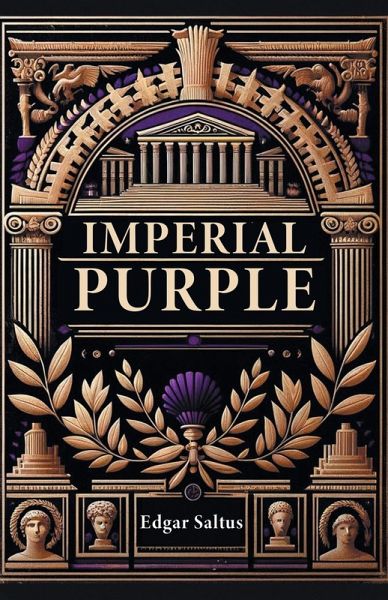
Imperial Purple
Versandkostenfrei!
Versandfertig in 1-2 Wochen
12,99 €
inkl. MwSt.

PAYBACK Punkte
6 °P sammeln!
Imperial Purple by Edgar Saltus is a historical novel set in the opulent and politically charged environment of ancient Rome. The novel combines themes of decadence, luxury, and political intrigue to create a richly textured narrative. The novel is set against the backdrop of ancient Rome, exploring the grandeur and excesses of the Roman Empire. Historical fiction elements are central to the story, providing a detailed portrayal of Roman life, politics, and social customs. The theme of decadence permeates the narrative, highlighting the moral and social decline of the Roman elite. The story vi...
Imperial Purple by Edgar Saltus is a historical novel set in the opulent and politically charged environment of ancient Rome. The novel combines themes of decadence, luxury, and political intrigue to create a richly textured narrative. The novel is set against the backdrop of ancient Rome, exploring the grandeur and excesses of the Roman Empire. Historical fiction elements are central to the story, providing a detailed portrayal of Roman life, politics, and social customs. The theme of decadence permeates the narrative, highlighting the moral and social decline of the Roman elite. The story vividly depicts the luxury and opulence of the period, illustrating how wealth and extravagance impact the characters and their interactions. Saltus provides a social critique of Roman society, offering commentary on the values and norms of the elite. The novel reflects on the consequences of moral and political corruption, providing insight into the broader societal issues of the period. Overall, Imperial Purple combines historical detail with themes of decadence, luxury, and political intrigue. Saltus's exploration of ancient Rome's social and political landscape offers a compelling and dramatic narrative that examines the impact of power and ambition on both individuals and society.












